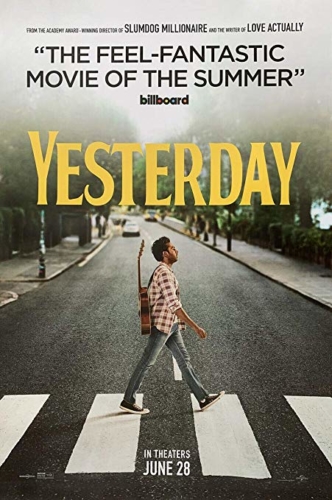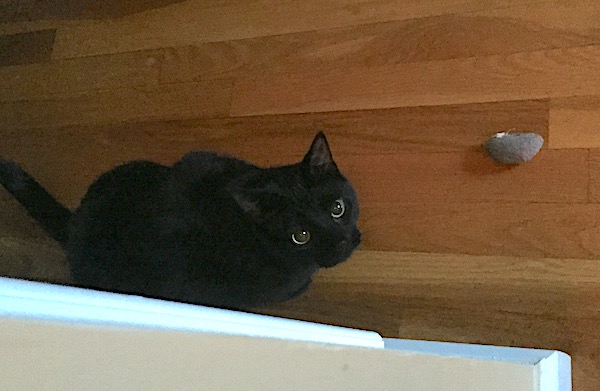Amidst the madness of the world, I consumed 59 books, 46 movies, dozens of TV programs and many podcasts this year. These were my favorites:
(Note: Not all were released during the past 365 days.)
MY FAVORITE BOOKS
 1. “The Day the World Came to Town: 9/11 in Gander, Newfoundland” by Jim DeFede
1. “The Day the World Came to Town: 9/11 in Gander, Newfoundland” by Jim DeFede
2. “The Institute” by Stephen King
3. “The Perfect Cookie: Your Ultimate Guide to Foolproof Cookies, Brownies, and Bars” by America’s Test Kitchen
4. “The Complete Slow Cooker: From Appetizers to Desserts – 400 Must-Have Recipes That Cook While You Play (or Work)” by America’s Test Kitchen
5. “Cook It in Cast Iron: Kitchen-Tested Recipes for the One Pan That Does It All” by Cook’s Country
6. “Britain by the Book” by Oliver Tearle
7. “The Library Book” by Susan Orlean
8. “The Uncommon Reader” by Alan Bennett
9. “Beware of Cat: And Other Encounters of a Letter Carrier” by Vincent Wyckoff
10. “Something Warm From the Oven: Baking Memories, Making Memories” by Eileen Goudge
(Honorable mentions: “Christmas Teatime: Celebrating the Holiday with Afternoon Tea” by Lorna Ables Reeves, “The Complete Vegetarian Cookbook” by America’s Test Kitchen, “The Story of The Great British Bake Off” by Anita Singh, “Click-Clack the Rattlebag” by Neil Gaiman, “Save Me the Plums: My Gourmet Memoir” by Ruth Reichl, “The Hit” by David Baldacci, “Sleeping Beauties” by Stephen and Owen King, “Bachelor Brothers’ Bed & Breakfast” by Bill Richardson, “Have a Nice Day” by Billy Crystal and Quinton Peeple, “The Innocent” by David Baldacci, “Wanderers” by Chuck Wendig, “The Dreamers” by Karen Thompson Walker, “Nigel: My Family and Other Dogs” by Monty Don, “Thanks A Thousand: A Gratitude Journey” by A.J. Jacobs and “Lights on the Sea” by Miquel Reinaand.)
Overall reading ratio: I read 17,501 pages — 53% fiction, 47% nonfiction; 61% male authors, 30% female authors, 9% other.
MY FAVORITE TV SHOWS

1. The Great British Baking Show
2. The Marvelous Mrs. Maisel
3. Escape to the Country
4. Gardeners’ World
5. Love Your Garden
6. Downton Abbey
7. The Kominsky Method
8. One Day at a Time
9. Broadchurch
10. Big Dreams Small Spaces
(Honorable mentions: Escape to the Continent, Shetland, A Million Little Things, 9-1-1, Santa Clarita Diet, A Discovery of Witches, Stranger Things, Modern Love, Elementary, Jack Whitehall: Travels with My Father, Jack Whitehall: At Large, Jessica Jones, Stephen Fry in America, Good Omens, Grace and Frankie, Supernatural, The Bodyguard, Comedians in Cars Having Coffee and Grimm.)
MY FAVORITE MOVIES
 1. Yesterday
1. Yesterday
2. If You’re Not in the Obit, Eat Breakfast
3. Avengers: Endgame
4. Never Surrender
5. A Beautiful Day in the Neighborhood
6. Finding Hygge
7. Judy
8. Downton Abbey
9. Doctor Sleep
10. Brene Brown: The Call to Courage
(Honorable mentions: Klaus, Blackkklansman, Green Book, Shazam, Captain Marvel, Jumanji: The Next Level, Knives Out and John Wick: Chapter 3 – Parabellum.)
MY FAVORITE PODCASTS
 1. Wait Wait… Don’t Tell Me
1. Wait Wait… Don’t Tell Me
2. Small Town Dicks
3. Mobituaries
4. Christmas Past
5. 10 Minute Writers Workshop
6. 99% Invisible
7. Clear+Vivid With Alan Alda
8. The Anthropocene Reviewed
9. Radiolab
10. Criminal
(Honorable mentions: David Tennant Does A Podcast With…, Death, Sex & Money, Sidedoor, Fresh Air, Dear Hank & John, Nocturne, Let Me Google That, The Bookshelf, Reply All, Rumble Strip and The Christmas Stocking.)
 Some people view obituaries as morbid stories, but in truth only one line of an obit deals with death. The rest of the story focuses on the amazing lives people led.
Some people view obituaries as morbid stories, but in truth only one line of an obit deals with death. The rest of the story focuses on the amazing lives people led. 
 1.
1. 

 1. Wait Wait… Don’t Tell Me
1. Wait Wait… Don’t Tell Me


